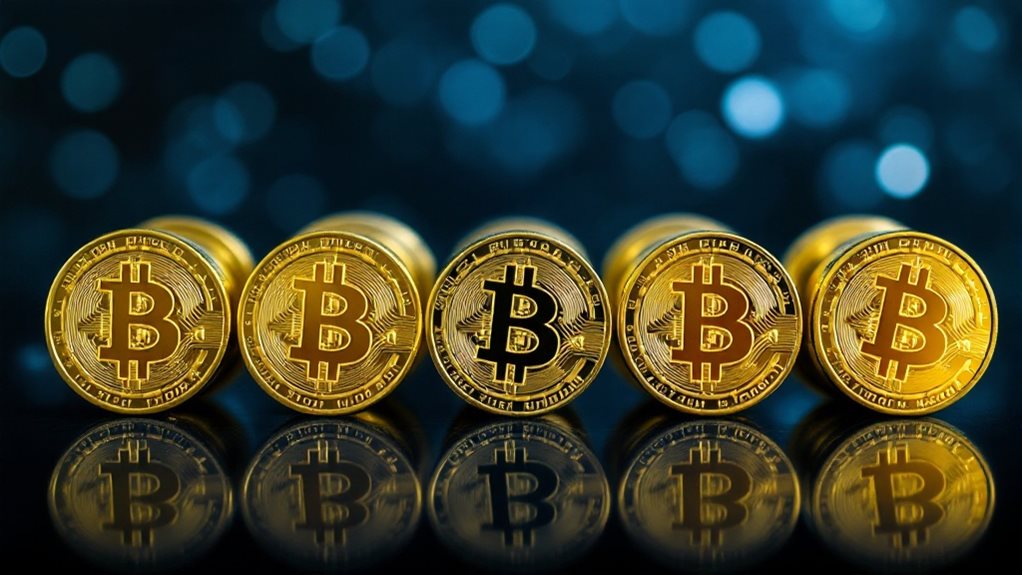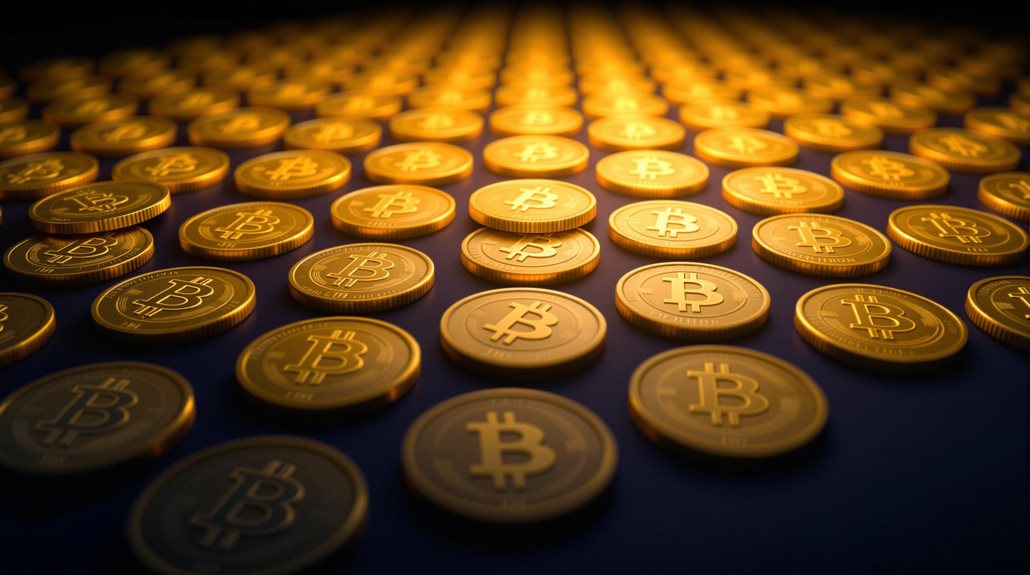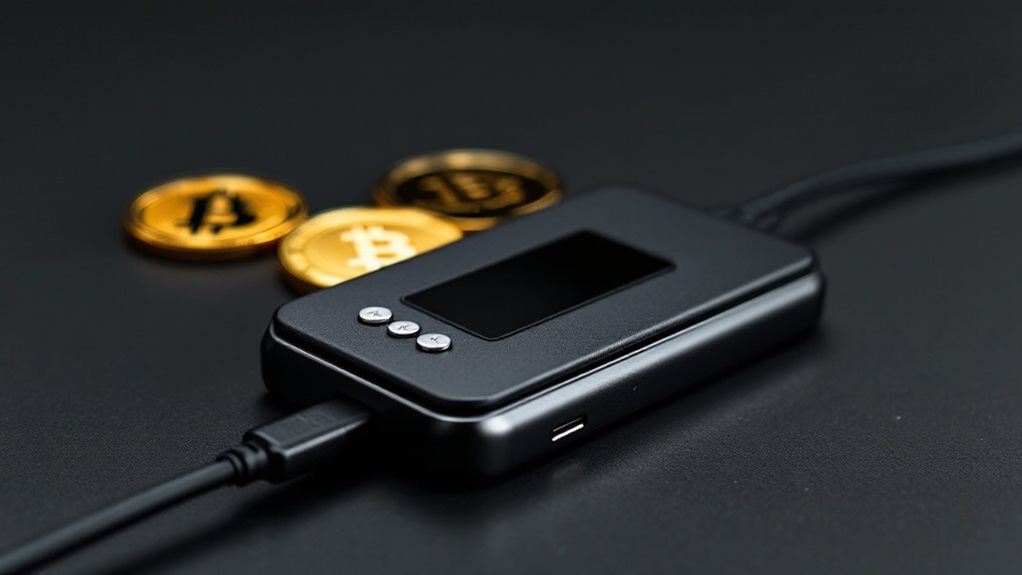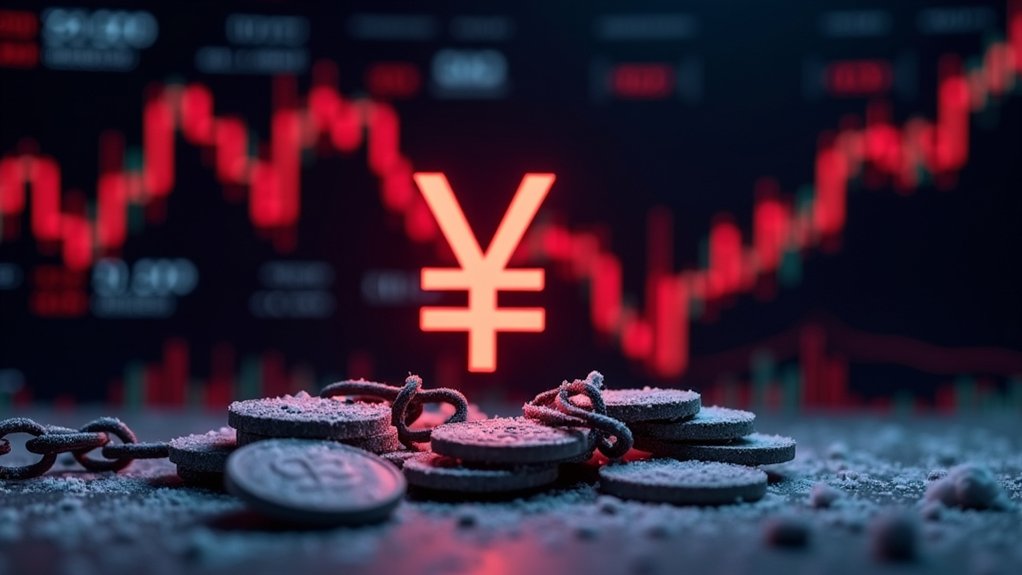Fungible tokens are digital assets that work like traditional money in the cryptocurrency world. They’re interchangeable, meaning one token has the same value as another of the same type, just like how one dollar bill equals another dollar bill. Bitcoin, Ethereum, and Tether are popular examples. These tokens can be divided into smaller parts while keeping their proportional value and are used for buying, selling, and investing. The cryptocurrency ecosystem continues to expand with these versatile digital assets.
Quick Overview
- Fungible tokens are interchangeable digital assets on blockchain networks where each unit has identical value and characteristics.
- Like traditional currency, fungible tokens can be divided into smaller units while maintaining proportional worth.
- Bitcoin, Ethereum (ETH), and Tether (USDT) are popular examples of fungible tokens used for transactions and investments.
- These tokens follow technical standards like ERC-20, enabling consistent functionality across different platforms and applications.
- Fungible tokens serve as mediums of exchange and provide access to features within decentralized finance (DeFi) ecosystems.

Fungible tokens represent a cornerstone of the cryptocurrency world. These digital assets exist on blockchain networks and have unique characteristics that make them valuable for various uses. The most significant feature of fungible tokens is that they’re interchangeable – just like dollar bills, where each one has the same value as another. They’re also divisible, which means you can split them into smaller parts while maintaining their proportional value. Environmental concerns have led to the development of tokens that use less energy-intensive blockchains. Traders can easily exchange these tokens in transparent pricing environments. These tokens are designed to be mediums of exchange and function similarly to traditional payment systems.
The cryptocurrency space has several well-known fungible tokens. Bitcoin, the first and most famous cryptocurrency, serves as a prime example. Other notable tokens include Ethereum’s ETH, which powers the Ethereum blockchain, and Tether (USDT), a stablecoin that maintains a value equal to one US dollar. Binance Coin (BNB) operates within the Binance ecosystem, while Cardano’s ADA functions as its native blockchain token.
These tokens serve multiple purposes in the digital economy. People use them as a medium of exchange to buy and sell goods and services. They also work as investment assets, similar to traditional stocks or bonds. Some tokens give users access to special features on their respective platforms, while others allow holders to participate in decision-making through decentralized autonomous organizations (DAOs). Unlike security tokens, utility-based fungible tokens don’t represent ownership stakes in projects. They’re also crucial in decentralized finance (DeFi) protocols, where they provide liquidity for trading and lending.
The technical side of fungible tokens relies on various standards and implementations. The ERC-20 standard is the most widely used, especially on the Ethereum blockchain. Other networks have their own versions, like BEP-20 for Binance Smart Chain and TRC-20 for the TRON blockchain. These standards guarantee that tokens work consistently across different platforms and applications.
Smart contracts handle the creation and management of these tokens, while digital wallets and cryptocurrency exchanges support their storage and trading.
The functionality of fungible tokens continues to evolve as blockchain technology advances. Their widespread adoption in cryptocurrency markets shows their significance in digital transactions and blockchain-based applications.
From simple payment methods to complex financial instruments, fungible tokens have become crucial building blocks in the growing cryptocurrency ecosystem. As more people and businesses embrace blockchain technology, these tokens play an increasingly important role in shaping the future of digital finance and decentralized applications.
Frequently Asked Questions
How Do I Store Fungible Tokens Securely in My Digital Wallet?
Storing fungible tokens securely involves using digital wallets with strong protection features.
People can keep tokens in hardware wallets (like USB devices) for maximum security, or software wallets on phones and computers for everyday use.
They’ll need private keys and passwords to access their tokens.
Many users split their tokens between different wallets – some offline for savings, others online for regular transactions.
Can Fungible Tokens Be Converted Back to Traditional Fiat Currency?
Yes, fungible tokens can be converted to traditional money like dollars or euros.
People typically use cryptocurrency exchanges for this process. They’ll first sell their tokens for a stablecoin, then exchange that for regular currency. The money can then be withdrawn to a bank account.
It’s worth noting that most exchanges require identity verification, and conversion fees apply. Market conditions affect how quickly and easily these conversions happen.
What Happens if I Lose My Private Keys for Fungible Tokens?
If someone loses their private keys for fungible tokens, they’ll permanently lose access to those tokens.
There’s no way to recover or reset lost private keys since there’s no central authority that controls them.
It’s like losing the only key to a safe – the tokens are still there, but they can’t be accessed.
The funds remain locked in the blockchain address forever, and there’s no way to spend or transfer them.
Are Fungible Tokens Regulated by Government Financial Authorities?
Yes, fungible tokens are regulated, but it’s not uniform worldwide.
Different countries have their own rules. Some treat them like virtual assets, while others view them as securities. Many governments are still figuring out how to handle them.
The rules often include things like KYC (knowing who’s buying and selling) and anti-money laundering checks.
As the technology grows, more specific regulations are being developed by financial authorities.
Which Cryptocurrency Exchanges Offer the Best Rates for Fungible Tokens?
Exchange rates for fungible tokens vary constantly across platforms.
Binance and KuCoin typically offer competitive rates due to their high trading volumes and low fees.
Coinbase, while user-friendly, often has higher fees that affect rates.
Kraken and Gemini provide balanced rates with added security features.
The best rates usually come from exchanges with high liquidity and multiple trading pairs.
Market conditions, trading volume, and platform fees all impact token rates.





